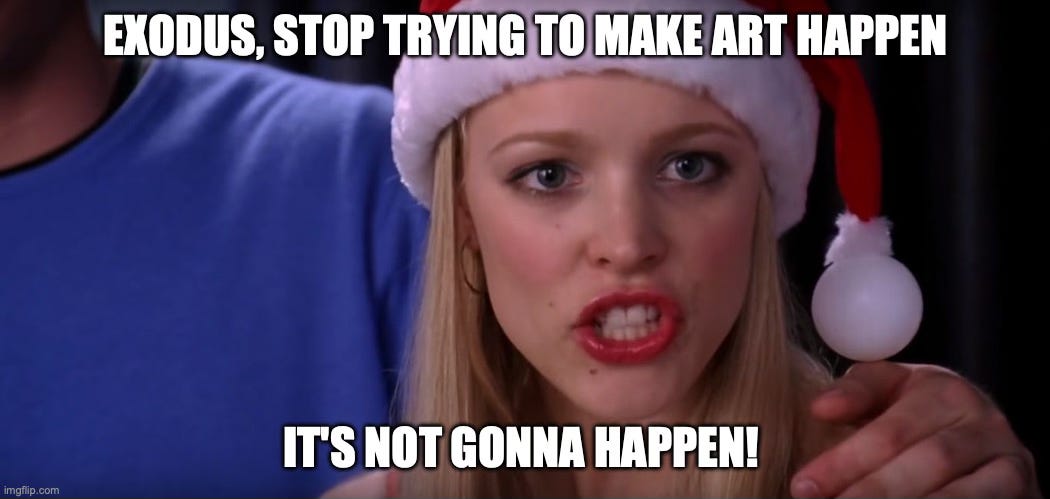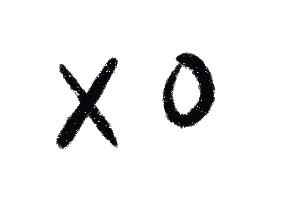If creativity is as natural for me as breathing, then why am I holding my breath?
A reflection on my struggle to make and how I have been performing creativity online and what I am doing about it
One of the results of me leaving the M word1 is that when I reach for my phone, with the itch to share a bit of myself, (mostly to see myself through different eyes, hoping I might enjoy myself a bit more through the eyes of another) I remember that I have somewhere else I need to put my life now.
So instead of sharing an infographic, colourful instagram quote on my story, or sharing an ambiguous photo of my feet at the gym, I choose to come here, with you all. Substack, particularly the melanated section, is full of educated, funny, sophisticated, creative, funky, nerds and there’s air conditioning here, and complimentary shrimp tacos. I like it here and I realise the language we speak in, is more text based than visual and I suppose, so am I, or so is my practice.
It’s Thursday afternoon, and we are all still looking for the spring we were promised here in England. I am wearing thick socks, sweatpants, and a hoody and I have all of my lamps switched on because, after all, the big light is only for reading instructions. I am sat in the corner of my sofa when I admit something to myself:
I have been struggling to make art happen. I have been feeling artistically - for lack of a better word - constipated and came to the realisation that I have been performing creativity.
My artistic practice and I are forever intertwined and impacted by life, audience and environment but I believe that when I am having these moments of disorientation and stillness it is because my artistic core is out of balance. It’s because I’m focused on appearing as an artist as opposed to actually being an artist; I’m performing creativity.
I believe that how I choose to make might change but what I want my art to be about will always come back to the same four areas. When I feel far from my core as I do now, I must revisit my four principles that convict and excite me:
Nature
My relationship with nature and how I use the materials of the earth to make
Nature as my god(s) and how can I worship and devote my life to the elements
Finding healing and holiness in nature
Memory
Positions of time and space: considering the past, present and future not as directional but as overlapping landscapes as opposed to them being an act of looking back or forward. Time not as behind or in front but inside and outside and merging together
Childhood as a forever state and how all other ‘hoods’ answer to the seeds of childhood
Religion
The lines between hedonism and religious purity
Rebelling and finding autonomy and exploring self-determination
Undoing colonial belief systems and finding indigenous spiritual practices
Symbols and ephemera that impact atmosphere and mood
Heart
The overwhelm of emotions: feeling everything at the most heightened levels
Pain as dying slowly and grieving as ongoing
Relearning what love is and love as a methodology for understanding self
There are many books that informed my most recent solo exhibition (Epiphany: Temporaire), just as there were when I curated my first ever solo show (Two Truths and a Lie) in 2019. But the books I find myself needing at the moment, and the reasons why are shared below.
Reviewing and, or critiquing a book is an incredible skill; one I do not yet possess, so the following comments are simply about how I engage with the texts and why, as opposed to what I think of them as a whole.
Texts I’m reaching for, to re-ignite my core:
Experiments in imagining otherwise2 by Lola Olufemi
Art on my mind: Visual Politics3 by bell hooks
Writers of the Caribbean Diaspora4 edited by Jasbir Jain & Supriya Agarwal
Transecology: Transgender Perspectives of Environment and Nature5 by D.A Vakoch
My own work - yes - my own writing. Everything that becomes three-dimensional always begins on the page, or the screen, but preferably on a page. I am learning that writing is a key part of my process and there is always a need for me to return to words; to language.
Your silence will not protect you6 by Audre Lorde
The healing wisdoms of Africa7 by Malidoma Patrice Somé
The Slow Grind8, edited by Georgina Johnson
There are some books that I intentionally do not read cover to cover but instead, go to them in search of wisdom, letting Spirit lead me to whichever section I ‘need’ to read in that moment. Lola Olufemi and Audre Lorde’s aforementioned books are two books that I engage with in this exact way. When I read books like Experiments in imagining otherwise and Your silence will not protect you, I am deeply challenged to think about the world/my world/ my relationship with the world around me. When I read these books, my way of thinking, the order of my thoughts and my Euro-centric, patriarchal, individualistic and capitalist conditioning is disrupted. These texts hold me accountable and remind me that my environment, my society, my community is not separate from me, that they are in fact my concern and I should not pride myself on the ability to isolate from my emotions, my body, my community and the natural world. I become just a little bit more undone when I read these books. I am forced to look at the wounds behind the flesh coloured plaster and confront the cause of the injury, and in some cases, the cause is me. These texts ground me in my morality, give me some life values and tell me which weapons are appropriate for the fight I am currently facing. They remind me that queer writers and thinkers such as Olufemi and Lorde are essential to the liberation and revolution of the modern, Afro-Caribbean diasporic person, particularly if this person has been raised as a girl or woman.
And then you have books like The healing wisdoms of Africa, Transecology, and The slow Grind, books from very different perspectives, different parts of the worlds, written in fairly different times. But all three of these books remind me of the power and supremacy of nature. All these texts teach how to be in nature, how to be taught by nature and how to speak the language of this earth we inhabit. Malidoma Patrice Somé has a beautifully quiet power in the way he shares his experiences of modern Africa and ancient Africa and his experience navigating the terrain in between. Somé consistently reminds us of the power of community and nature throughout his book and D.A Vakoch presents essays that speak a bit more to who I am as a trans being, seeing myself in the trees and animals and learning that the fluidity of being is in fact natural and incredibly profound.
I am grateful to have lived in the same timeline as bell hooks, and her 1995 release of Art on my mind: Visual politics showed me that my practice has a place and sits down gently in the canon of many other brilliant Black creatives. hooks’ book on art gives me excerpts of a mission statement and has provided me with the values of my art practice. I refer to it whenever I wish to describe why I make what I make and to remember why my way of making and my voice is important, particularly amongst my (s)kinfolk.
I will end this entry by saying that Writers of the Caribbean Diaspora was the first book I fell in love with during my homecoming visit to Jamaica some years ago. I sat behind a wooden desk too small for my stocky physique, in St James Library in Montego Bay, with a collection of dusty books in front of me when I ran my fingers across the frigid plastic cover of Jain and Agarwal’s book. This book plays a significant part in reuniting me with Jamaica because of all the books I have read in my lifetime, I have never been introduced to or encouraged to read books written by Caribbean authors. My school library would have never had Annie John on its shelf and my University reading lists would have never included the philosophical thinkings of Miss Lou or the literature of Dionne Brand, and so this book continues to be my collective reading list and connection to authors from my place of heritage, and for that I am forever grateful, as always, to Jamaica for its wisdoms.
My name is Exodus, many of my loved ones call me Exo for short. Exo has become a personal vow to love and hold myself and others, so with hugs and kisses, I thank you for reading. xoxoxo
If you want to connect to this part of my world, engage with my thinking and practice then I invite you to join me on these predominantly text-based platforms: Substack, Bluesky and, for those who I’m closest to, writing to me at my home address is always welcomed ♡
M3ta platforms, mainly instagram. Please read previous post for more on my departure from instagr@m and whats@pp.
Olufemi, L. (2021) Experiments in imagining otherwise. United Kingdom: Hajar Press.
Hooks, B. (1995) Art on my mind: Visual politics. The New Press.
Jain, J. and Agarwal, S. (2008) Writers of the caribbean diaspora: Shifting homelands, travelling identities. New Delhi: Sterling Publishers.
Vakoch, D.A. (2022) Transecology: Transgender perspectives on environment and nature. London: Routledge, Taylor & Francis Group, earthscan from Routledge.
Lorde, A. (2017) Your silence will not protect you. UK: Silver Press.
Somé, M.P. (1999) The healing wisdom of africa: Finding life purpose through nature, ritual, and community. New York: J.P. Tarcher/Putnam.
Johnson, G. et al. (2020) The Slow Grind. Self published






